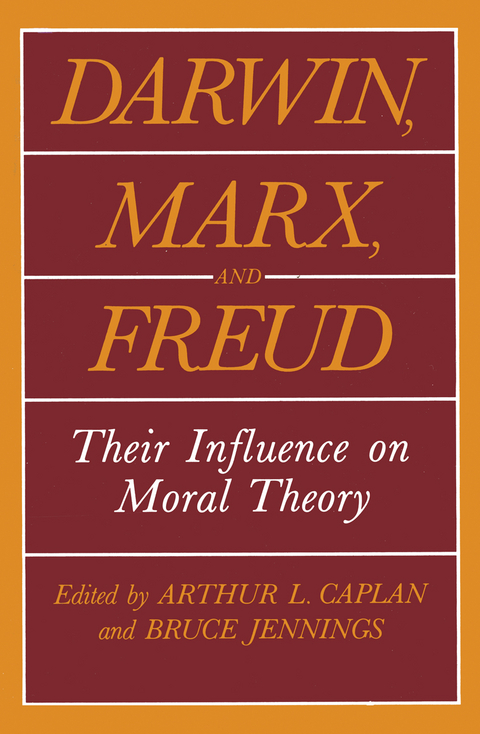
Darwin, Marx and Freud
Their Influence on Moral Theory
Seiten
2012
|
Softcover reprint of the original 1st ed. 1984
Springer-Verlag New York Inc.
978-1-4684-7852-5 (ISBN)
Springer-Verlag New York Inc.
978-1-4684-7852-5 (ISBN)
hope of obtaining a comprehensive and coherent understand ing of the human condition, we must somehow weave together the biological, sociological, and psychological components of human nature and experience. And this cannot be done indeed, it is difficult to even make sense of an attempt to do it-without first settling our accounts with Darwin, Marx, and Freud. The legacy of these three thinkers continues to haunt us in other ways as well. Whatever their substantive philosophical differences in other respects, Darwin, Marx, and Freud shared a common, overriding intellectual orientation: they taught us to see human things in historical, developmental terms. Phil osophically, questions of being were displaced in their works by questions of becoming. Methodologically, genesis replaced teleological and essentialist considerations in the explanatory logic of their theories. Darwin, Marx, and Freud were, above all, theorists of conflict, dynamism, and change. They em phasized the fragility of order, and their abiding concern was always to discover and to explicate the myriad ways in which order grows out of disorder. For these reasons their theories constantly confront and challenge the cardinal tenet of our modern secular faith: the notion of progress. To be sure, their emphasis on conflict and the flux of change within the flow of time was not unprecedented; its origins in Western thought can be traced back at least as far as Heraclitus.
One Darwin.- One The Philosophical Implications of Darwinism.- Two Evolution and Ethics.- Three Darwinism and Ethics: A Response to Antony Flew.- Two Marx.- Four Preliminary Thoughts for a Prolegomena to a Future Analysis of Marxism and Ethics.- Five Marxism and Ethics Today.- Six Marx and Morality.- Three Freud.- Seven Freud’s Impact on Modern Morality and Our World View.- Eight Ethics and Excuses: The Ethical Implications of Psychoanalysis.- Nine Freud’s Influence on the Moral Aspects of the Physician-Patient Relationship.
| Erscheint lt. Verlag | 26.11.2012 |
|---|---|
| Reihe/Serie | The Hastings Center Series in Ethics |
| Zusatzinfo | XXVIII, 258 p. |
| Verlagsort | New York, NY |
| Sprache | englisch |
| Maße | 140 x 216 mm |
| Themenwelt | Geisteswissenschaften ► Philosophie ► Ethik |
| Geisteswissenschaften ► Psychologie ► Klinische Psychologie | |
| Medizin / Pharmazie | |
| Naturwissenschaften ► Biologie ► Evolution | |
| Sozialwissenschaften ► Politik / Verwaltung ► Politische Theorie | |
| Wirtschaft ► Betriebswirtschaft / Management | |
| ISBN-10 | 1-4684-7852-4 / 1468478524 |
| ISBN-13 | 978-1-4684-7852-5 / 9781468478525 |
| Zustand | Neuware |
| Haben Sie eine Frage zum Produkt? |
Mehr entdecken
aus dem Bereich
aus dem Bereich
unsere kollektive Verantwortung
Buch | Hardcover (2023)
wbg Theiss in Wissenschaftliche Buchgesellschaft (WBG) (Verlag)
35,00 €


